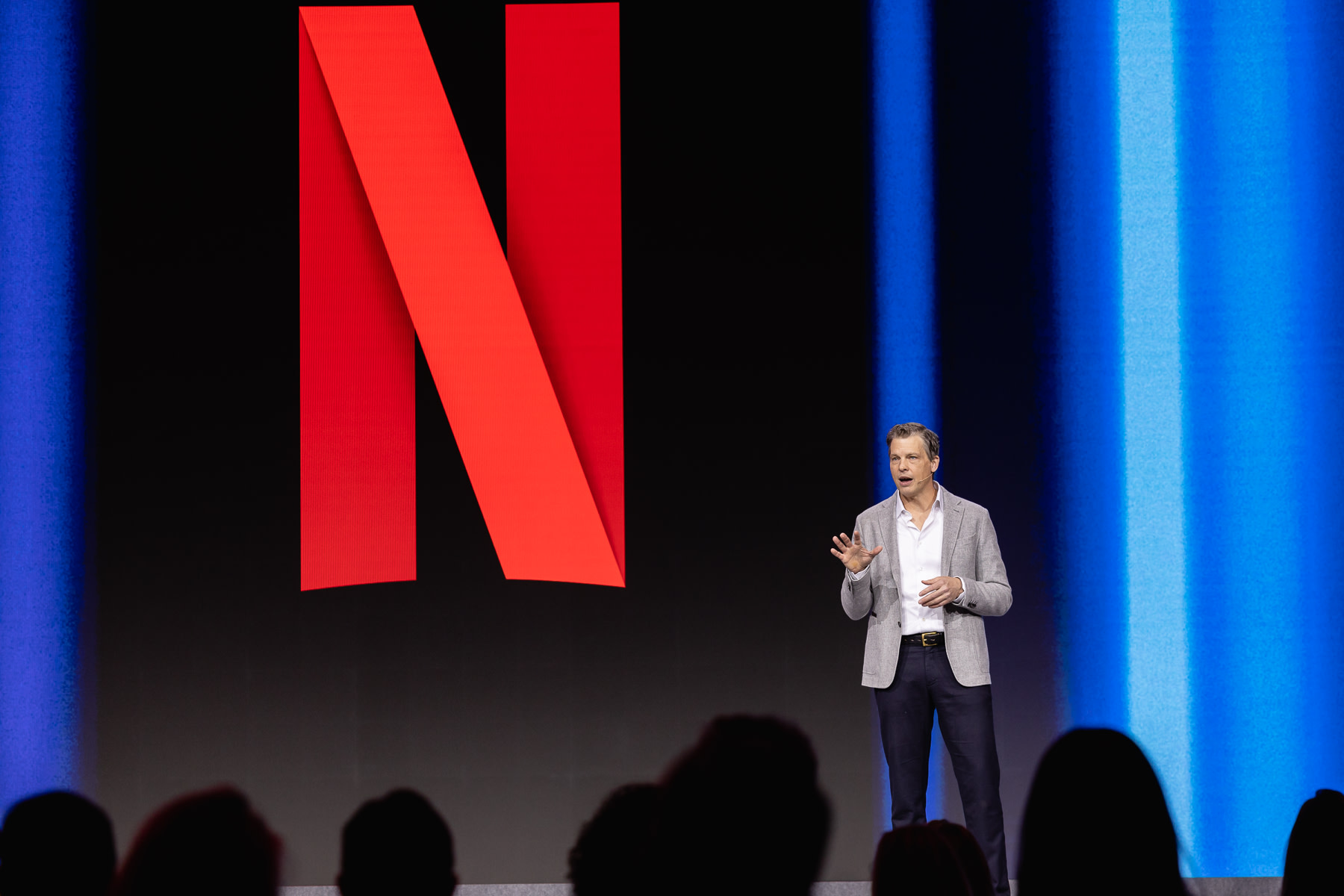Netflix co-CEO Greg Peters spoke out against a European proposal to make streaming providers and other online firms pay for ISPs' network upgrades.
"Some of our ISP partners have proposed taxing entertainment companies to subsidize their network infrastructure," Peters said in a speech Tuesday at Mobile World Congress in Barcelona (transcript). The "tax would have an adverse effect, reducing investment in content—hurting the creative community, hurting the attractiveness of higher-priced broadband packages, and ultimately hurting consumers," he argued.
ISPs have been seeking payments for years, and their demands are now being evaluated by European regulators in an exploratory consultation. The European Commission last week started taking public input on the proposal to make online platforms pay for telecom companies' broadband network upgrades and expansions.
"ISPs claim that these taxes would only apply to Netflix. But this will inevitably change over time as broadcasters shift from linear to streaming," Peters said at MWC.
Sandvine data suggests that nearly half of global Internet traffic is sent by Facebook, Amazon, Google, Apple, Netflix, and Microsoft. Online video accounts for 65 percent of all traffic, and Netflix recently passed YouTube as the top video-traffic generator.
“Charging twice for the same infrastructure”
Peters cited Nielsen data showing that "Netflix accounts for under 10 percent of total TV time" in the US and UK while "traditional local broadcasters account for over half of all TV time." Live sports account for much of that.
"As broadcasters continue the shift away from linear to streaming, they will start to generate significant amounts of Internet traffic too—even more than streamers today based on the current scope and scale of their audiences," Peters said. "Broadband customers, who drive this increased usage, already pay for the development of the network through their subscription fees. Requiring entertainment companies—both streamers and broadcasters—to pay more on top would mean ISPs effectively charging twice for the same infrastructure."


 Loading comments...
Loading comments...
